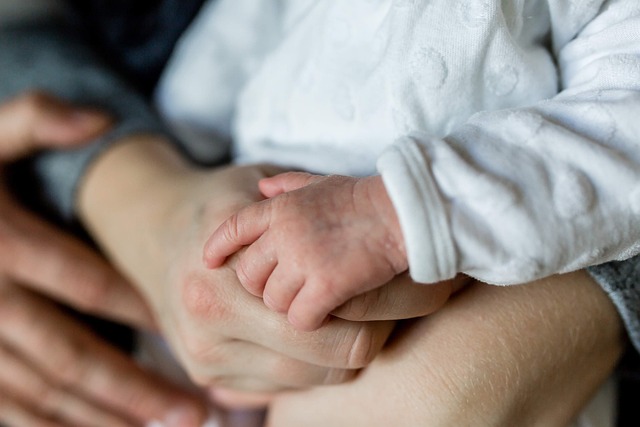Families facing DHS child welfare cases in Oregon can find support through Marion County child advocacy centers, which offer specialized legal services and guidance on child protective services law. Understanding parental rights protection under Oregon family law is crucial for navigating complex proceedings, ensuring the best outcome, and preserving familial bonds. These resources empower parents to actively participate in decisions, build resilience against stress, and mitigate emotional strain during challenging legal processes.
“Helping families navigate complex child welfare cases is a critical aspect of ensuring every child’s well-being and upholding parental rights. This comprehensive guide aims to empower parents with knowledge about essential legal services available to them. From understanding their rights under the Child Protective Services Act and Oregon Family Law to navigating DHS child welfare processes, this article offers practical insights. It highlights Marion County Child Advocacy’s role in supporting families and provides coping strategies for building resilience during challenging times.”
- Understanding Child Welfare Legal Services: A Family's Guide
- Parental Rights Protection: Ensuring Every Parent's Voice is Heard
- Navigating DHS Child Welfare Cases: What Families Need to Know
- Marion County Child Advocacy: Supporting Families Through Difficult Times
- Unraveling the Oregon Family Law and Child Protective Services Act
- Building Resilience: Coping Strategies for Families in Child Welfare Cases
Understanding Child Welfare Legal Services: A Family's Guide

Navigating a child welfare case can be overwhelming for any family. Understanding your rights and the process is essential to ensuring the best possible outcome for your family. Child Welfare Legal Services are designed to support parents throughout these challenging times, providing guidance on parental rights protection and helping them navigate DHS child welfare cases. In Marion County, the child advocacy team works tirelessly to advocate for children involved in child protective services law while also supporting their families.
Oregon family law dictates the procedures and protections for all parties involved in a child welfare case. This includes ensuring that families are informed about their rights, the potential outcomes, and the steps they can take to regain custody of their children. By familiarizing themselves with Oregon’s family law and working alongside dedicated professionals like those at Marion County Child Advocacy, families can better understand their role in the process and actively participate in decisions affecting their future.
Parental Rights Protection: Ensuring Every Parent's Voice is Heard

In every child welfare case, it’s paramount to protect and uphold parental rights, ensuring that every parent’s voice is heard and their interests are represented. The process can be complex, especially in DHS child welfare cases, where families often face challenges navigating the Oregon family law system. Marion County Child Advocacy centers play a vital role in facilitating this protection by providing dedicated legal services tailored to these sensitive matters. These services help parents understand their rights and actively participate in decisions affecting their children’s future, ensuring a fair and just outcome for all involved.
By offering specialized knowledge of child protective services law, advocates ensure parents are well-informed about their legal standing and options. This support is crucial in mitigating the emotional strain often associated with such cases and empowering parents to make informed choices. Effective parental rights protection not only strengthens family unity but also fosters a sense of justice, ultimately contributing to the successful resolution of Marion County child advocacy cases.
Navigating DHS Child Welfare Cases: What Families Need to Know

Navigating a child welfare case can be an overwhelming and stressful experience for families, especially when dealing with agencies like DHS (Department of Human Services) and their related services, such as Marion County Child Advocacy. These cases often involve complex legal processes, including child protective services law, which can be difficult to understand without proper guidance. Families must be aware that their parental rights protection is paramount, and they have the right to seek Oregon family law expertise to navigate these challenging situations.
The process begins with an initial report or concern about a child’s safety and well-being. From there, DHS child welfare cases can lead to various outcomes, including temporary custody arrangements, case plans for reunification, or even termination of parental rights. It is crucial for families to promptly connect with legal professionals specializing in child welfare legal services. These experts can provide clarity on the legal process, help protect parental rights, and guide families through the complexities, ultimately ensuring the best possible outcome for both parents and children involved.
Marion County Child Advocacy: Supporting Families Through Difficult Times

In Marion County, Child Advocacy centers play a pivotal role in supporting families navigating complex child welfare cases. These dedicated organizations offer a safe space for parents to understand their rights and access crucial legal services, including parental rights protection under Oregon family law. By providing resources and guidance, they empower families to navigate the often confusing and daunting process of DHS child welfare cases effectively.
Marion County Child Advocacy centers facilitate communication between families and child protective services law experts, ensuring every parent receives the necessary support. Their efforts help preserve the familial bond while upholding the legal framework surrounding child welfare. This holistic approach recognizes that, during difficult times, families need more than just legal solutions; they require a supportive network to foster resilience and healing.
Unraveling the Oregon Family Law and Child Protective Services Act

In Oregon, the intricate interplay between family law and child protective services is governed by the Oregon Family Law and Child Protective Services Act. This legislation is designed to protect the best interests of children while also safeguarding the parental rights of their guardians. When a family faces a child welfare case, understanding this legal framework becomes paramount, especially in jurisdictions like Marion County where dedicated child advocacy programs are in place.
The Oregon Family Law grants comprehensive guidelines on various aspects of family matters, including custody, visitation, and support. Simultaneously, the Child Protective Services (DHS) law outlines procedures for investigating reports of child abuse or neglect, ensuring a structured and fair process. These legal services play a pivotal role in helping families navigate complex DHS child welfare cases while upholding the principles of parental rights protection within the Oregon family law system.
Building Resilience: Coping Strategies for Families in Child Welfare Cases

Building resilience is an essential aspect of helping families navigate complex child welfare cases. It involves equipping parents with coping strategies to handle the emotional toll and challenges that come with such legal processes. Many families involved in DHS child welfare cases, including those in Marion County child advocacy programs, often experience stress, anxiety, and a sense of powerlessness. Therefore, providing support systems and tools to enhance resilience is crucial for their well-being during this difficult time.
Oregon family law recognizes the significance of parental rights protection and seeks to ensure that families have access to resources that aid in rebuilding strength and stability. Child protective services laws are designed to facilitate a supportive environment, offering counseling, educational programs, and community connections. These initiatives empower parents to actively participate in decision-making processes, fostering a sense of agency while navigating the legal system.






